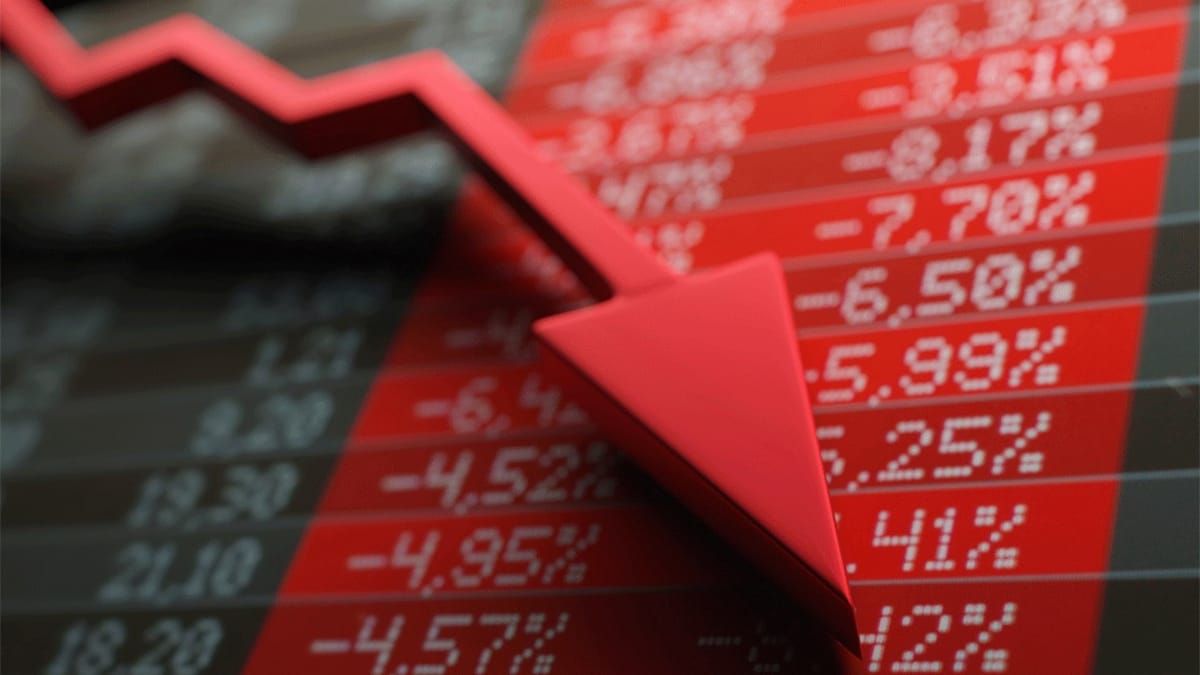Deepshikha | Jul 10, 2022 |

4 mistakes people make during a market crash
The latest market crashes across the globe are a reflection of the world’s current turbulence. Despite obstacles including rising inflation, FII withdrawals (albeit transitory, as history has proven), and the COVID 19 virus’s omicron version, which threatens world recovery, the Indian economy is still working to revive.
The threat of a large market decline is always present due to the uncertainty and confusion surrounding the worldwide pandemic that appears to be a permanent part of all of our lives.
We witnessed it from March–April 2020. Significant falls have occurred recently. The Sensex dropped about 5000 points from its peak in October (it closed at 55,826 points on 20 Dec 2021).
We comprehend how frightening facing a crash can be. Anyone would be devastated to suddenly lose a sizable portion of their assets.
However, a market crash in equities markets is more or less inevitable, whether we like it or not. There will occasionally be something of this nature with any traded commodity. However, so far, no crash has been permanent, even though many investors mistakenly think it is.
Regardless of how intelligent they may otherwise be, investors do make blunders. Due to their disregard for some fundamental principles of equities trading, such as refraining from investing in bubbles (if only they knew! ), even luminaries like Einstein and Newton lost money in the stock markets. You don’t have to commit the same errors, though.
Whatever the situation, there are some activities you can take and some you should never do after a crash. Here are 4 of these mistakes that investors frequently make when a substantial market decline is present.
Long-term investing success is based on two factors. staying invested in reputable businesses and continuing to invest, particularly when markets drop. Market crashes frequently result in some extremely good businesses becoming somewhat discounted.
This permits fund managers to purchase even more shares of outstanding corporations. Your SIP increases in value as a result. This is also the time that your SIP fulfils its purpose of assisting you in making investments in varying market situations in the most effective manner.
Stopping your SIPs at this time is comparable to not purchasing a flash sale.
Yes, the indices have occasionally produced returns that narrowly beat inflation, but the longer a person invested, the more probable it was that they would see returns that exceeded inflation. In reality, the likelihood of losing was essentially negligible for a period longer than six years.
Speaking of booking losses, there is much to be said. For traders, it is a wise choice, but for investors who put money into reputable mutual funds, losses don’t always equate to the same thing. For starters, if the fund selection is sound, there is a significant possibility that your loss is more of a passing occurrence.
You can always switch to a better fund if the current one is subpar. But selling all of your equity? The actual loss might occur there. Even while the future is always unpredictable, there has never before—at least not in India—been a sustained equities bear market.
Yes, the indices have occasionally produced returns that narrowly beat inflation, but the longer a person invested, the more probable it was that they would see returns that exceeded inflation. In reality, the likelihood of losing was essentially negligible for a period longer than six years.
Exiting to safeguard your investment will probably do more harm than good to you.
The term “gamble” is frequently used to describe equities investing. As many people enter the markets to make a quick profit, it frequently does see gambling-like activity. While some succeed, the majority utterly fails. Trading experts’ holy grail is market timing, but even the most astute individuals have come to see its futility. Many investors postpone making investments during a crash in the hope of finding a better opportunity later.
The existence of a SIP is due to this. When a market will bottom out is unknown. All you can do is keep making investments and add up your costs. Markets can turn on their heads.
There is no denying the volatility of the equity asset class. It is the only liquid asset type, nevertheless, that has consistently outperformed inflation. A well-considered stock strategy can and has rewarded investors for their long-term objectives.
Despite numerous market crashes, equity has continued to outperform inflation. Investors frequently give up since the cycle of a crash and recovery can last for years. This is another reason we keep stating that equity only pays out over seven years or longer.
However, the reality is that equity will continue to exist as long as our society needs industry and commerce. A mistake that could have a negative impact on the majority of your long-term financial goals is losing faith in this asset class and never investing in it again.
You do not need to lose faith if your investments are in carefully chosen mutual funds that have a track record of reliable performance.
Almost nobody can forecast when a financial crash will occur. However, it is up to you how to handle a crash’s effects on your investments. A better wager than completely writing off equity is to keep investing and stay invested (assuming you are in high-quality stocks or mutual funds).
In case of any Doubt regarding Membership you can mail us at [email protected]
Join Studycafe's WhatsApp Group or Telegram Channel for Latest Updates on Government Job, Sarkari Naukri, Private Jobs, Income Tax, GST, Companies Act, Judgements and CA, CS, ICWA, and MUCH MORE!"